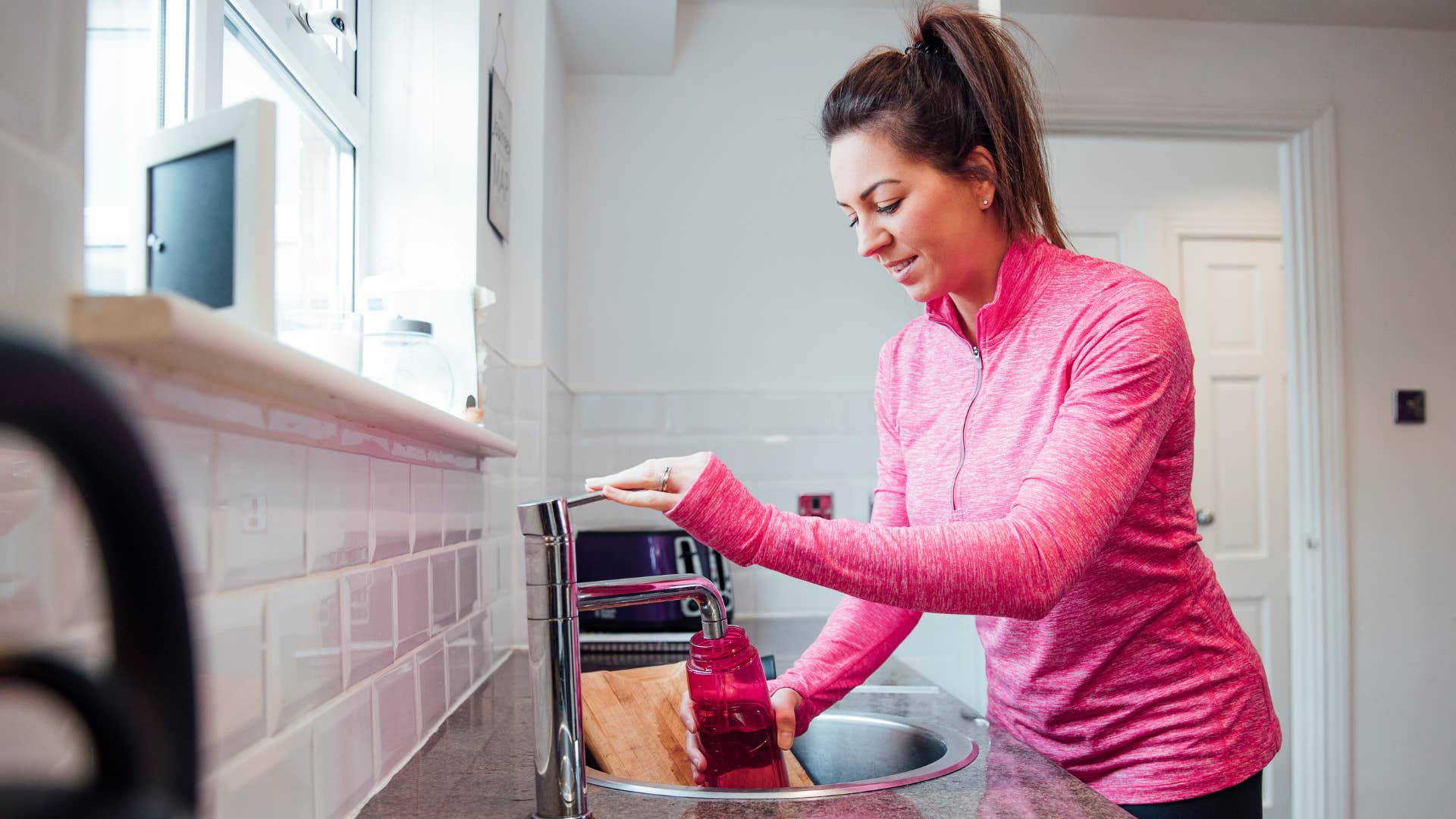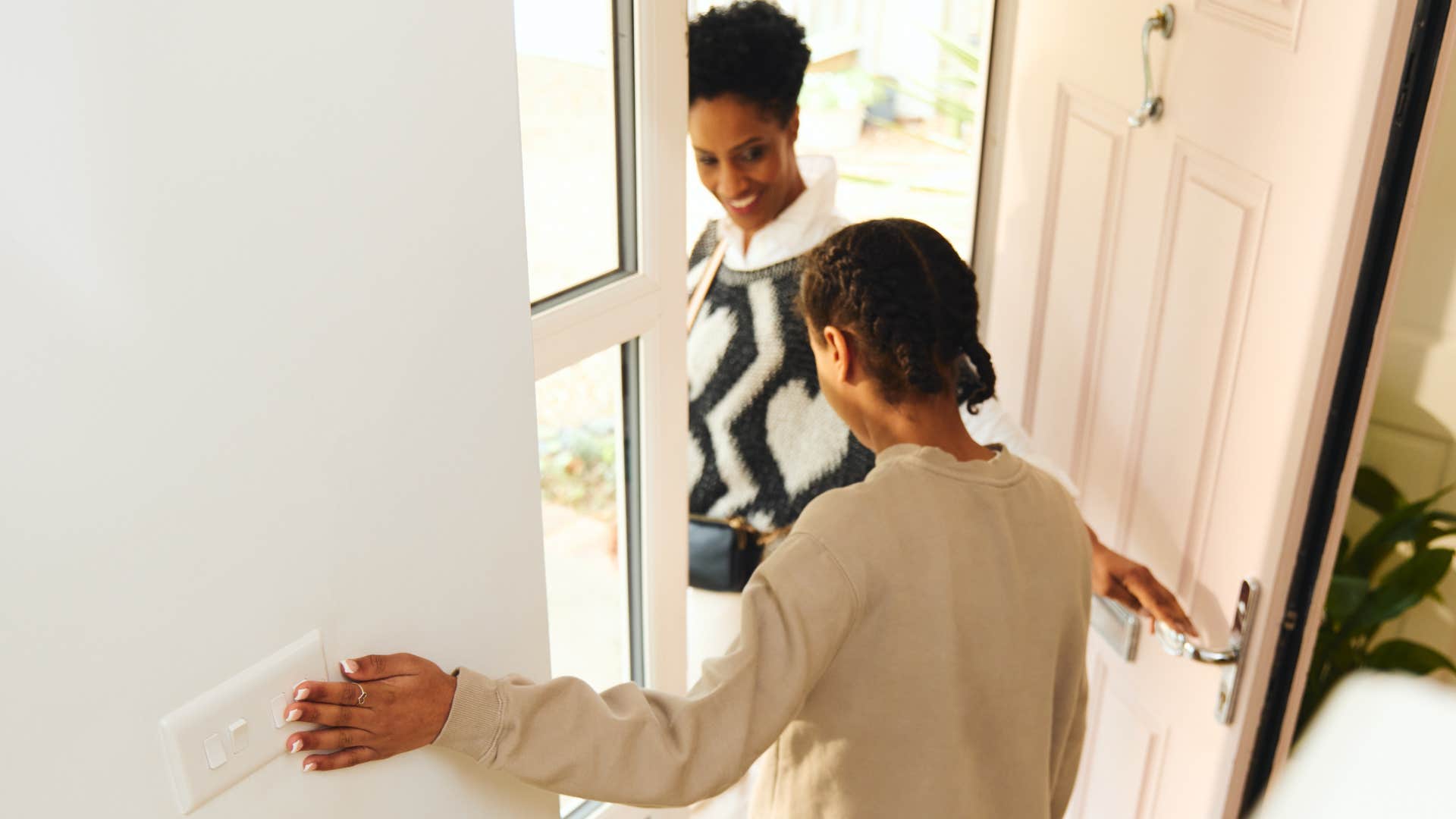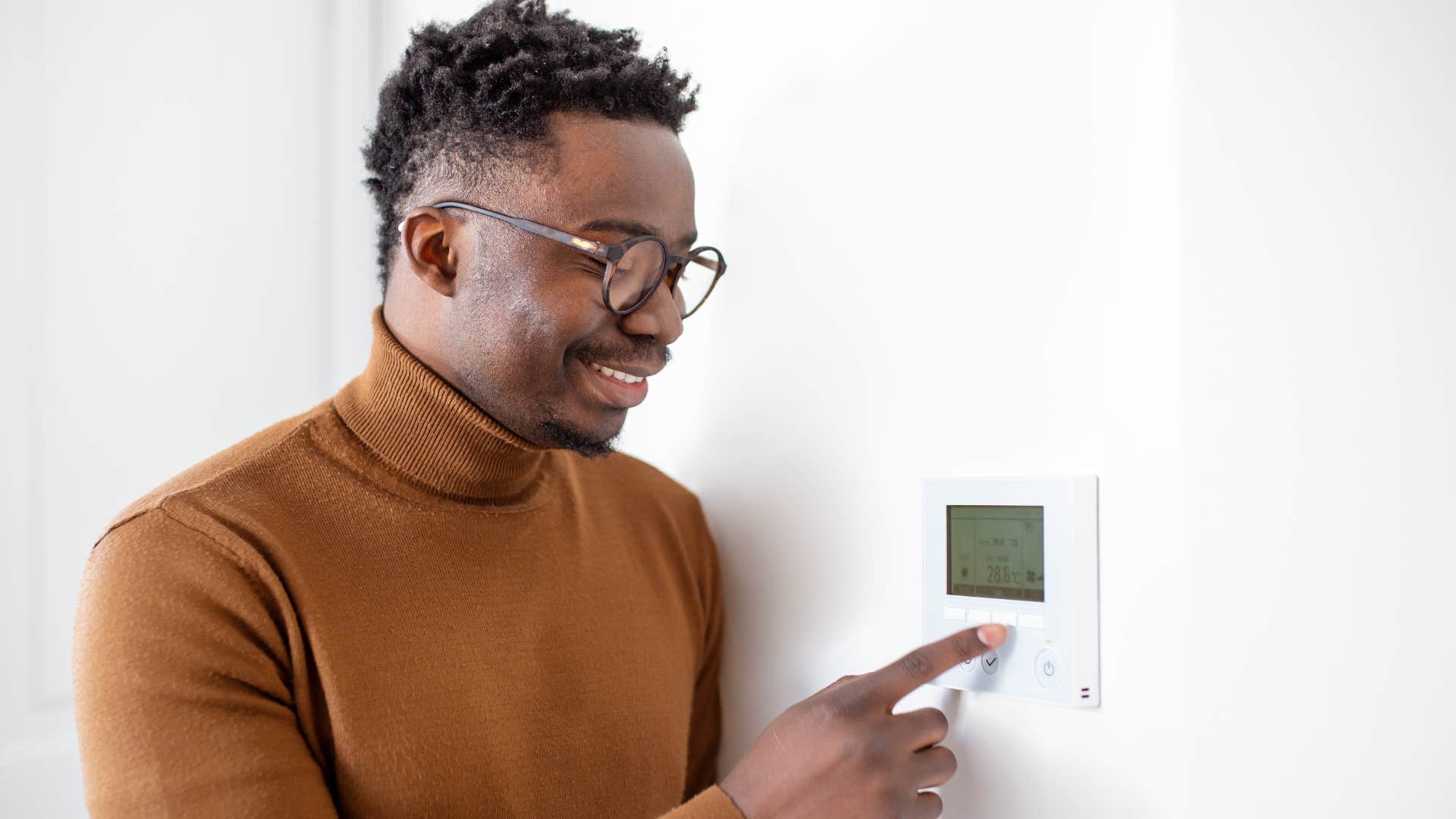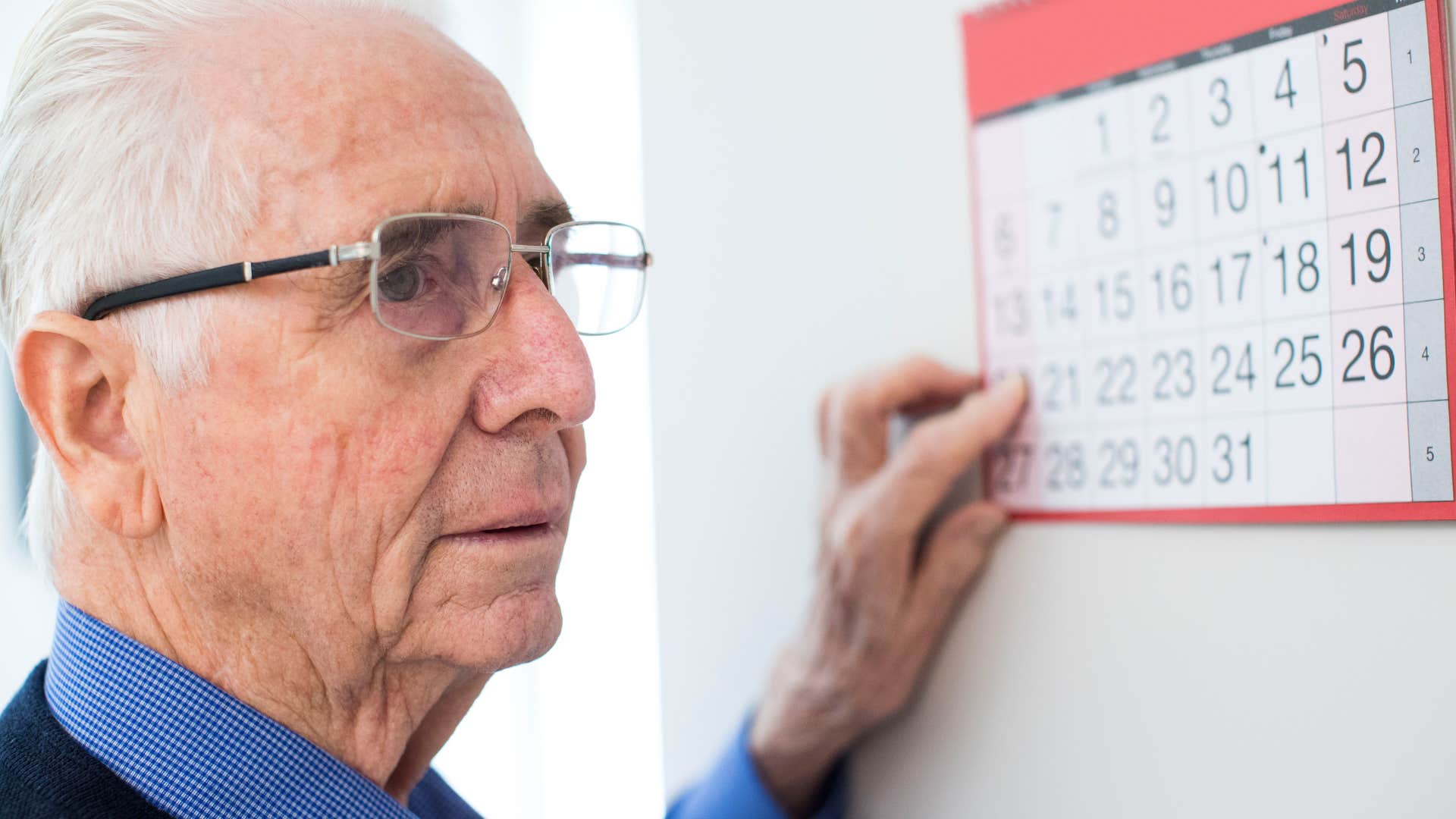11 Things Frugal People Do Before Leaving The House That Save Money Long-Term
Planning ahead each and every day is a smart financial habit that can save you loads of money over time.
 lenetstan / Shutterstock
lenetstan / Shutterstock Frugality is a mindset, and possessing the financial self-control to adopt specific daily habits can play a profound role in helping people save money. Whether that means indulging in cost-effective personal hobbies, opting for public transportation, or even planning tasks with to-do lists, sometimes it’s the most subtle actions that make the most significant difference in a person's financial stability.
Many of the things frugal people do before leaving the house that save money long-term may seem obvious or even insignificant to the average person, yet most people fail to do them anyway. From planning meals to packing lunches and organizing their days ahead of time, sometimes it’s organization, rather than sacrifice or cutting back, that sets people up best for long-term financial success.
Here are 11 things frugal people do before leaving the house that save money long-term
1. They make a to-do list
 Roman Samborskyi | Shutterstock.com
Roman Samborskyi | Shutterstock.com
Being conscientious, intentional about planning, and organized are some of the most important ways people save money and craft better financial futures, according to a study published in the Journal of Consumer Affairs. Even if that means doing things as simple as making grocery lists or task to-do lists before leaving the house, they ensure they’re prepared to spend money without pressures or confusion about what they need to do.
When you go to the grocery store with a list, you’re not browsing without limits, buying things that will likely go to waste. The same goes for planning out your daily tasks and to-dos. You’re more likely to be productive and not waste time or money when you’re organized and efficient.
2. They eat something
 Pixel-Shot | Shutterstock.com
Pixel-Shot | Shutterstock.com
Eating is one of the things frugal people do before leaving the house that saves them money long-term. Not only does it ensure they’re not going to work or running errands while hungry, a situation that sets people up to overspend on convenience and fast food, but it also improves their cognitive performance, mood, and general energy levels throughout the day.
They’re more productive at work, more emotionally regulated, and less pressured by consumerist and convenience, all of which are experiences that tend to save people money navigating their daily lives and making better financial decisions.
3. They fill a reusable water bottle
 DGLimages | Shutterstock.com
DGLimages | Shutterstock.com
The average person spends more than $1,300 annually on plastic water bottles, so even if it seems like an innocent habit to prioritize convenience to stay hydrated, it’s costly. By filling a reusable water bottle before leaving for the house, frugal people set themselves up to save money over the course of the year, even if that means spending more time refilling a water bottle, rather than just buying one.
Even when it comes to living in the present moment and being able to enjoy their personal and professional lives, people who prepare and plan ahead are set up for success, as psychology expert Nir Eyal suggests.
4. They turn off the lights
 Southworks | Shutterstock.com
Southworks | Shutterstock.com
Being intentional about energy usage at home and opting for more efficient lighting options are some ways frugal people save money. However, even something as simple as turning off the lights and powering down appliances is one of the things they do before leaving the house that saves them money long-term.
While other people might rush around trying to make it to school drop-off or work on time, figuring that it’s fine to leave some lights on for the day, frugal people know that even the smallest investments of time are worth enough in the long term to prioritize.
5. They change the thermostat
 Photoroyalty | Shutterstock.com
Photoroyalty | Shutterstock.com
Even if they’re not worried about prioritizing temperature comfort for higher utility costs when they’re at home, adjusting the thermostat when they leave, depending on the season, is one of the things frugal people do before leaving the house that saves them money long-term.
They don’t mind turning the temperature up in the summer or down in the winter when they leave, especially considering they save around 10 to 15% more annually on utility costs by setting their home at a more energy-efficient temperature for 8 hours a day.
6. They make themselves coffee
 Dragon Images | Shutterstock.com
Dragon Images | Shutterstock.com
According to a Statista study, the average person spends nearly $50 a month buying coffee outside of their homes, even if they have the coffee makers, syrups, and tools to do it from their own kitchen. It’s a matter of convenience, something that many frugal people don’t feel pressured into seeking out, because they’re organizers and planners from the moment they wake up.
Making coffee at home is one of the things frugal people do before leaving the house, not just to save them money, but as a ritual for boosting their mood and cultivating mindfulness before the chaos of their day.
7. They plan their commute
 Halfpoint | Shutterstock.com
Halfpoint | Shutterstock.com
The average consumer spends nearly 20% of their annual salary every single year on commuting to the office, according to a study from Clever Real Estate. For some, especially in highly congested cities and urban areas, that can total close to $10K in a single year alone. Using public transportation, walking, or carpooling with loved ones are some of the things frugal people plan before leaving the house that save them money long-term.
It obviously takes a lot of extra planning and sometimes time to structure a commute in a more cost-effective way, but for frugal people, it’s worth the effort with their big-picture financial stability in mind.
8. They check their calendar
 Daisy Daisy | Shutterstock.com
Daisy Daisy | Shutterstock.com
According to a study from the Columbia Business School, using a physical calendar every day can boost productivity and general well-being. That’s why it’s one of the things frugal people always use before leaving the house that actually saves them money. They know to pack a snack if they have a big meeting at work later. Maybe they have to pick up their kids, so instead of stopping for a fast food meal before, they pack an extra lunch.
Even if it’s simply a catch-up on all their tasks and responsibilities for the day, physical planners and calendars set them up for success, both financially and otherwise.
9. They take care of their appearance
 Pixel-Shot | Shutterstock.com
Pixel-Shot | Shutterstock.com
Whether it’s blowing out their hair after showering, doing their nails, or a slew of other grooming activities at home, one of the things frugal people do before leaving the house that saves money long-term is taking care of their appearance.
According to a study from Advanced Dermatology, the average person spends more than $700 annually on their appearance, so it’s not surprising that frugal people are committed to doing cosmetic work themselves and investing in tools that make it much easier at home.
10. They check their pantry and fridge
 Hryshchyshen Serhii | Shutterstock.com
Hryshchyshen Serhii | Shutterstock.com
Especially if they’re going grocery shopping or running errands that day, checking their inventory is one of the things frugal people do before leaving the house that saves them money in the long term.
Not only are they saving money on last-minute grocery shopping trips if they’re already going to be out and running errands, but they'll also avoid spending more on transportation the second they realize they don’t have an ingredient. By planning meals and lists around what they already have on hand, they can save even more.
11. They review their upcoming bills
 Fizkes | Shutterstock.com
Fizkes | Shutterstock.com
Many people unknowingly overspend on experiences and material items they don’t need. They’re trying to cope with loneliness by going out with friends or running errands, but they don’t spend that same kind of time and intentionality reviewing their expenses and bills.
If you know that rent is coming up because your utility bill is right around the corner, you’ll be less likely to spend money you don’t have or waste away dollars that you’re supposed to use on those expenses. By checking their bills and upcoming expenses before they leave the house, they’re reminded of the intentionality and self-discipline they need to harness to avoid impulsivity.
Zayda Slabbekoorn is a staff writer with a bachelor’s degree in social relations & policy and gender studies who focuses on psychology, relationships, self-help, and human interest stories.

